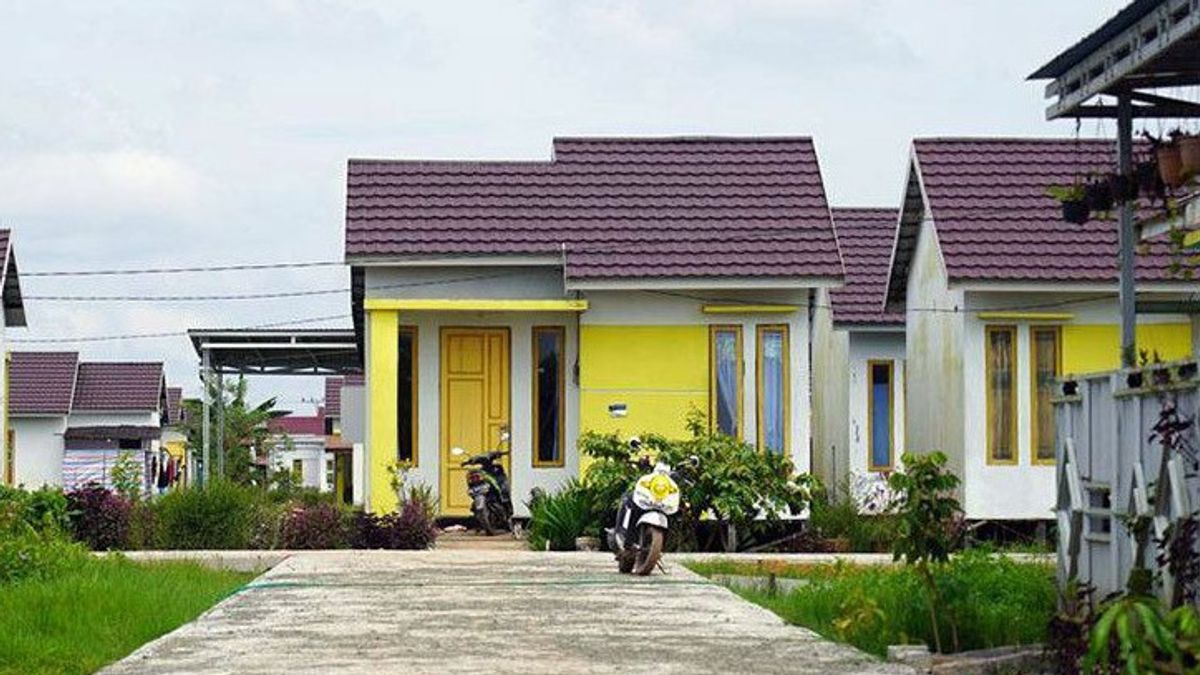JAKARTA - The People's Housing Savings Management Agency (BP Tapera) revealed that the subsidized housing industry will still promise property sector business actors in 2023.
"We are optimistic that the housing industry, especially subsidized housing, will still be promising in the coming year," said BP Tapera Commissioner Adi Setianto at the "Economimic Outlook and Prospects for the Housing Sector in 2023", quoted from Antara, Monday 19 December.
Adi Setianto stated that the creativity of financing schemes such as Housing Financing Liquidity Facilities (FLPP) and the support of stakeholders from the housing ecosystem is believed to be able to make it happen.
It is stated, in 2023, FLPP is targeted to be distributed to as many as 220,000 housing units worth IDR 25.18 trillion. Meanwhile, Tapera financing is 10,000 units worth IDR 1.05 trillion.
It was noted that the realization of the distribution of FLPP funds this year as of December 14, 2022 was 216,029 units worth IDR 24.03 trillion, so that the distribution of FLPP funds from 2010-2022 was 1,159,608 units worth IDR 99.21 trillion.
He stated that there are several positive indications that can spur enthusiasm to continue to encourage the housing industry in 2023, including the first from 24 countries in the world that have issued data on GDP in the third quarter of 2022, there are 15 countries (62.5 percent) experiencing a stagnant economic slowdown, 2 countries (8.3 percent) and only 7 countries (29.2 percent) experiencing economic growth, including Indonesia.
Second, he continued, the increase in interest rate in Indonesia is relatively moderate at 175 bps (points base), showing that monetary policy combined with effective fiscal policy to reduce further inflation increases. BPS data also shows that Indonesia's economic growth in the third quarter of 2022 reached 5.72 percent on an annual basis and grew 1.81 percent on a quarterly basis.
"Indonesia's economy is relatively strong in countering inflationary pressures considering that Indonesia has fundamentally experienced a trade surplus of 30 consecutive months due to the blessing of commodities followed by a combination of monetary policy mixes so that the adjustment of interest rates is not aggressive compared to other countries," said Adi Setianto.
He argues that the various monetary policy mixes implemented by Bank Indonesia and the Government, starting from the increase in Minimum Mandatory Giro (GWM), the increase in measurable interest rates, and other supporting policies, are considered quite effective in maintaining inflation rates at an acceptable rate. Thus, the IMF in its last release estimated that Indonesia will grow 5.3 percent this year and 5 percent in 2023.
The English, Chinese, Japanese, Arabic, and French versions are automatically generated by the AI. So there may still be inaccuracies in translating, please always see Indonesian as our main language. (system supported by DigitalSiber.id)













